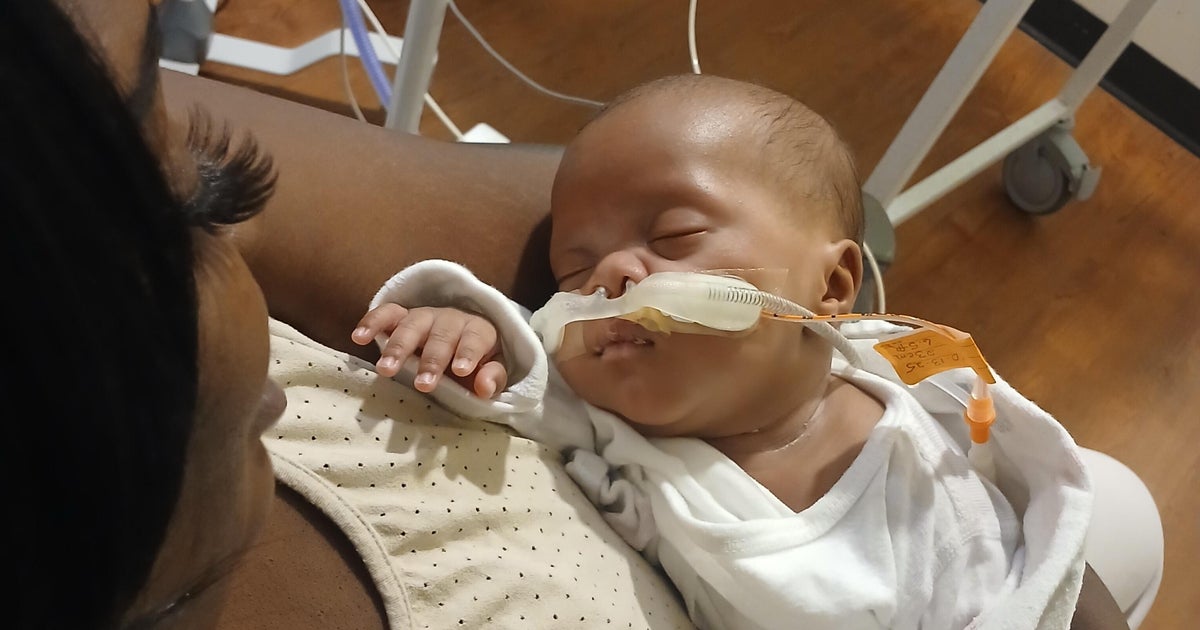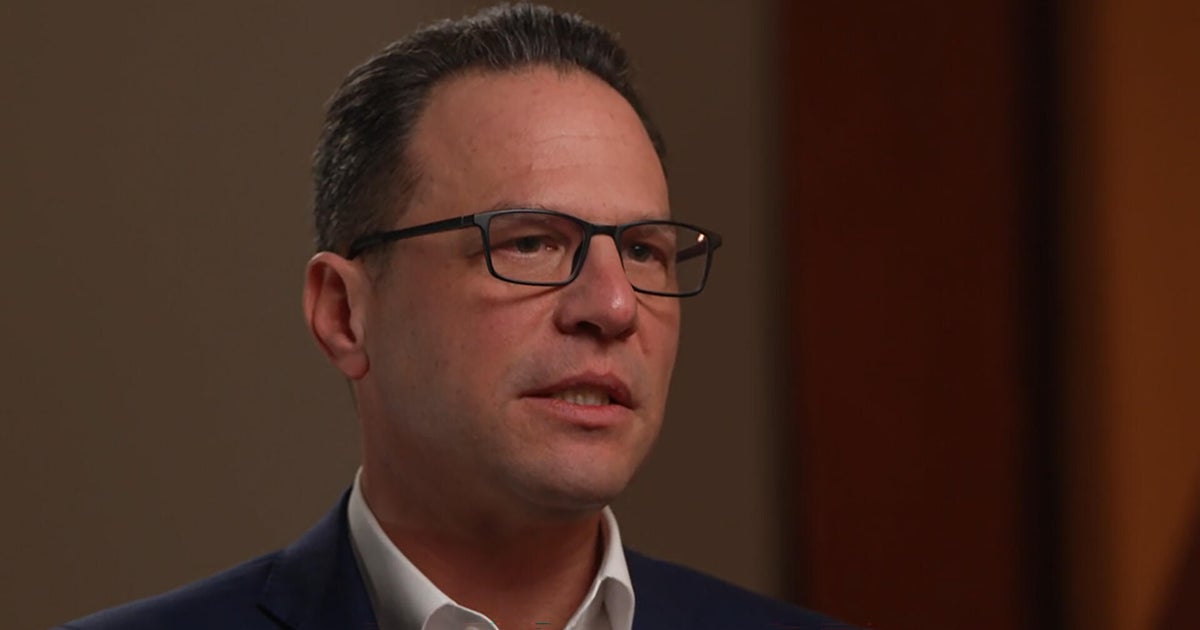Growing Number Of Lawsuits Raise Questions About Care Provided By Cruise Lines
MIAMI (CBSMiami) - As their father was being evacuated to a hospital in Juneau, Alaska, Laura Goodloe and Cliff Puchalski wanted to disembark Royal Caribbean's Explorer of the Seas as quickly as possible to be with him.
Their father, Richard, had collapsed after the ship's doctor gave him the wrong medication. As a result, the 70-year-old collapsed in his cabin and his heart stopped for more than twenty minutes before he was revived.
"I just remember thinking myself and saying out loud, `We're losing him, we're losing him,' because they had a defibrillator machine next to them and it kept reading off the amount of time that had gone on since he last took a breath," Goodloe recalled.
"And so it was five minutes and then seven minutes and then 10 minutes and it's all the way up to 15 minutes. And they still don't have a pulse. And not surprisingly, when they finally did inject him with an epinephrine, which is an adrenaline inducer, they were able to regain a heartbeat. But at that point in time, it probably been over 20 minutes since he dropped."
After refusing to send him to the hospital in Juneau earlier in the day when Puchalski first started showing signs he was suffering from congestive heart failure, the crew now couldn't wait to get him off their boat – albeit in a vegetative state.
As Puchalski's children tried to follow him off the boat, the crew stopped them. Before the could leave, they had to settle their bill.
"Yeah, we had to check out and pay all our bills before we could leave the ship," Goodloe said. "And so while my dad is, you know, sitting in a hospital as a vegetable, essentially we're having to pay Royal Caribbean out for our beverage packages and Internet packages and to make sure that they get made whole here. And so that obviously left a bad taste in our mouths. Nobody from Royal Caribbean followed up with us whatsoever."
Richard Puchalski died several days later after being airlifted to a hospital in Anchorage.
The family sued Royal Caribbean and in 2019, a federal jury in Miami awarded them $3.4 million.
"I feel as though these cruise companies literally anticipate perhaps killing people due to the negligence of their agents, that being their medical staff, and they just budget for it," Goodloe said.
Royal Caribbean declined a request to be interviewed, sending CBS Miami the following statement: "Mr. Puchalski's passing was a tragic event and our thoughts remain with the family. We were disappointed with the outcome of the lawsuit, and we stand behind our licensed and credentialed medical teams, who adhere to the highest standards of care and are committed to the well-being of our guests and crew."
The Puchalski case is part of a growing number of lawsuits raising questions about the care provided by cruise lines.
"Despite all the lip service and everything else, large corporations tend to be controlled by their bottom line," said Todd Michaels, one of the attorneys who represented the Puchalski family. "And from the beginning of time until 2014, cruise ships could not be held responsible for the negligence of their doctors. So they had no financial incentive to hire competent doctors to put people's safety first."
So what happened in 2014?
In a landmark case, the US Court of Appeals threw out the protection that cruise lines had long enjoyed. It's known as the Franza decision, and it stems from a lawsuit brought against Royal Caribbean in which a passenger suffered a severe head injury, and the ship's doctor didn't bother to examine him. The man died a week later.
The man's daughter, Patricia Franza sued Royal Caribbean. And following the long-established precedent, the federal judge in Miami threw out the suit, saying cruise companies can't be held liable for the negligence of its doctors – no matter how incompetent those doctors may be.
In 2014, the appeals court decided that wasn't right, noting: "…we see no reason to follow an outdated rule that serves no useful purpose in modern maritime law. "
More lawsuits followed.
In 2020, the parents of a nine-month-old baby sued Royal Caribbean after their daughter had to have part of her arm amputated because the medical staff aboard the Symphony of the Seas allegedly refused to properly diagnose an infection and evacuate the child to a hospital where she could be treated.
In 2019, Norwegian Cruise Lines settled a case in which one of its doctors prescribed the wrong medication to a 13-year-old child that left her in debilitating pain. The details of that case have now been sealed.
Cruise lines routinely hide information from the public as well as their passengers, according to Prof. Ross Klein, who has studied the cruise industry for decades and written four books.
"The cruise industry has done a lot of work creating public relations documents," he explained. "They've worked with organizations to create standards. So the cruise line can say that we meet or exceed all standards. But those standards are not legislated. They're not regulations that are agreed upon by governments or international forums. The cruise industry didn't include rape kits on the cruise on their cruise ships until they were forced to do it by legislation in 2010."
"I mean, they don't do these things voluntarily," he continued. "Medical care is there in part because they've got to have something in order to comply with international regulations, which doesn't specify what they actually need. And the other part is it's there to make money. It's a revenue stream."
The cruise lines make money every time a passenger visits the infirmary. And in some cases, doctors receive a commission on the services they provide and the medications they prescribe.
Another common factor is that while most passengers believe the medical staff are licensed and trained in the United States, they rarely are. The cruise lines instead rely on doctors trained in other countries, who cost less than an American physician.
"So what we found in our cases is they hired doctors from all over the world with minimal experience, with experience that certainly isn't sufficient to be the sole or one of two doctors on a ship with five thousand passengers," said Michaels. "Every doctor that we had had in one of these cases is not even been certified to practice in the United States. So if a passenger suffered an injury while getting on the ship, the doctor wouldn't be able to treat them. But the second that ship leaves these five thousand people out there have nowhere else to turn."
Goodloe said she certainly expected the doctor on the cruise to be licensed in the United States.
"At one point in the trial, the defense counsel was essentially admonishing us for not investigating their own medical facilities before we got on the ship, as if to say they know and are aware that they're ill-equipped to treat individuals according to the standard of care," Goodloe recounted. "And it's on the passenger to research how poor of infirmaries they have on their boats. And it's our fault that we went on a cruise ship that they're providing subpar medical services on."
According to Professor Klein, even if a passenger wanted to investigate the quality of care on a cruise ship, they wouldn't get very far.
"There's no transparency with regard to any of the information in terms of who are the physicians on board the ships; what is the history with regard to malpractice or passenger complaints; or even where the physicians are trained or registered from," Klein said.
We asked Royal Caribbean and Carnival to provide someone to discuss not only the Puchalski case but also the broader issue of the medical care onboard their ships. They refused.
Christine and Ron Radowski learned that for themselves during a 2019 cruise aboard Carnival's Vista.
Ron felt increasingly ill during their cruise to Latin America
"He was very sick, had been coughing up blood, coughing, just having a really rough time," Christine recalled.
When they went to the infirmary the doctor was a 27-year-old who had recently graduated medical school in Colombia.
"The doctor didn't even examine him, just took one look at him and started pulling up some information on acid reflux and all kinds of things," Christine said. "And I kept saying to the doctor, please examine him, please look at him. He's really ill. He's really sick, you know. I just I just couldn't imagine the doctor not taking the time to examine Ron well."
The doctor told Ron he would be fine and sent him back to his cabin.
Ron continued to decline and by the time the cruise ended they rushed him to a hospital. But not before they were required to pay all of their bills.
"They took him into the emergency room immediately and the doctors started working on him," Christine said. "He was in for respiratory arrest when we got to the hospital and he was placed immediately in the ICU. That was Sunday night. By Monday, they could not keep his oxygen level up. And I was told that he would not make it through the night Monday night unless he was transferred to another hospital. He was put on a ventilator to do his breathing for him."
"And a priest came and gave him his last rites," she continued, fighting back tears. "And I was told to say my last words to him because I may not see him alive again. It just all happened that fast. Ron spent, oh, gosh, almost three weeks in a coma, on a ventilator and on the pump."
He spent three months in rehab but is now in extreme pain and can no longer work.
"It just changed our lives catastrophically," Ron said. "It cut 10 years off my career because I can't walk like I used to."
The Radowski's are suing Carnival. Their case is still pending. A representative for Carnival said they do not comment on pending litigation.
"It didn't have to happen," Ron said. "I'm angry at that. I just don't want anyone else to go through this. It's just not fair to anybody."







